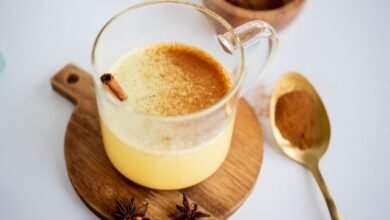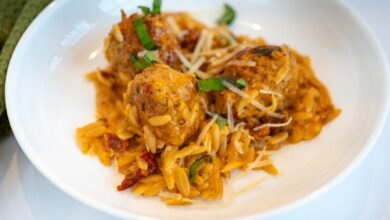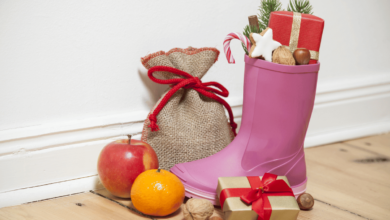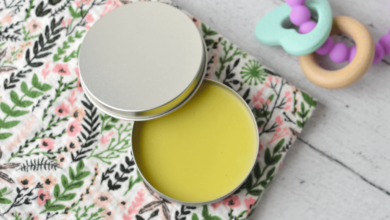6 Ways To Get Healthy Hair
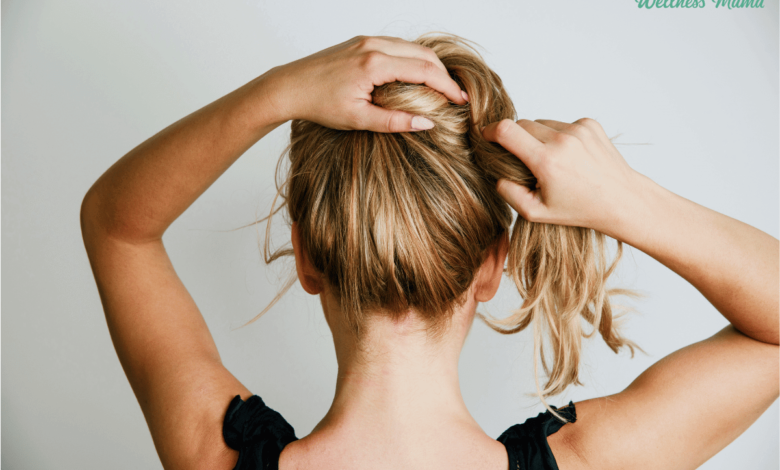
I’ve been pregnant a time or six and had the wonderful thick hair that comes with it. Then comes the postpartum hair loss. For years I also dealt with hair loss from thyroid issues. These events prompted me to search for how to naturally promote hair growth and hair health.
Some post-pregnancy shedding is hormonal and inevitable, but there are natural ways to improve damaged hair and thinning hair. Here’s what I’ve discovered on my journey to healthy hair.
How to Get Healthy Hair
Our hair’s condition is a good indicator of what’s going on inside our body. It’s important to address the body as a whole to improve hair health in the long term. This includes eating a healthy diet and reducing stress.
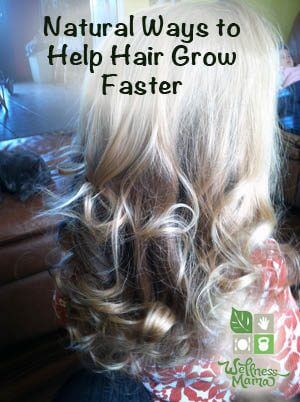
I also wonder if these tips help baby’s hair growth in utero. My kids have all come with a LOT of hair, especially my daughter (her hair is in the picture above and she was three when taken!). Her hair has always been naturally thick, curly, and easy to work with. In fact, she was born with almost two inches.
These natural tips also benefit the body in other ways, so there isn’t much to lose!
1. Eat Enough Protein
Protein is essential for hair growth. Be sure to get enough protein (most of us aren’t!) to ensure the body has the necessary building blocks for hair. Complete protein sources like meats and fish are the most beneficial for hair growth. Many meats also contain iron, which is also essential for healthy hair.
Foods like meats, fish, eggs, and especially bone broths are excellent for hair growth. These foods also have necessary fatty acids to promote healthy hormones and scalp health.
2. Get The Vitamins
Some vitamins help promote hair growth, most notably vitamin C and biotin. The body needs vitamin C to produce collagen, which is necessary for healthy hair and skin. Vitamin C also helps with iron absorption, which promotes hair growth (plus it’s an immune booster!). Since the body can’t make vitamin C it’s one vitamin we have to get from food or supplements. Foods like citrus, broccoli, bell peppers, and spinach are good sources.
Biotin (and other B vitamins) can also promote faster and stronger hair growth. Plus it’s great for skin care too. Biotin is a water-soluble B vitamin our bodies use to digest fats and sugars. Eggs, nuts, berries, fish, and some vegetables all provide biotin in small amounts. Sometimes a supplement can be helpful to boost levels.
Other nutrients play a role in conditions like alopecia, hair damage, and prematurely greying hair. Zinc deficiency is thought to contribute to hair loss. A 2013 study found those early grey hairs may be caused by deficiencies in calcium, ferritin, and vitamin D3. Other factors include low selenium, B12, and folate.
Getting a variety of nutrient-dense foods and healthy sun exposure (without sunscreen!) are musts to make hair look its best.
3. Up the Gelatin
I’ve posted before about the many benefits of gelatin and why it’s great for healthy hair, skin, and nails. Gelatin is one thing I eat daily in some form, either in bone broth or gelatin powder (or both). From a previous post:
“Gelatin is largely composed of the amino acids glycine and proline, which many people don’t consume in adequate amounts as they are found in the bones, fibrous tissues, and organs of animals, and as a population, we don’t consume these parts as much anymore. These amino acids are needed not only for proper skin, hair, and nail growth but for optimal immune function and weight regulation.”
Glycine, which makes up about 1/3 of the amino acids in gelatin powder is anti-inflammatory. Evidence shows glycine can even speed wound healing. Here are some of my favorite ways to incorporate gelatin.
4. Balance Hormones
Hormones and gut bacteria play a bigger role in health than people realize. Even if you have the best diet and supplements, hormone imbalance can derail health. Some studies even show how certain hormone reactions help heal brain trauma.
Hormones are often a major cause of hair loss or poor hair growth. Unfortunately, there can be many causes of hormone imbalance. This is also the reason for hair loss after pregnancy. We can take steps to improve hair while working to balance hormones (here are my top tips for naturally balancing hormones).
Stress and lack of sleep are two major contributors to hormone imbalance. These factors can also trigger dandruff. According to board-certified dermatologist Dr. Robinson, high stress levels can lead to high cortisol. When these stress hormones rise it triggers inflammation, oily hair, and scalp buildup. This oily buildup can then lead to dandruff.
5. Use the Right Products
Though the major causes of poor hair quality and growth are internal, external treatments can help improve existing hair and prevent breakage. From castor oil to gelatin I’ve tried many DIY hair treatments, most of which I really like! Here’s where I wrote about some of my favorites:
Things like bleaching hair and using conventional hair color at the local stylist aren’t great for hair and scalp health. Not to mention all of the toxins in conventional hair care products! However, natural hair products can cause problems too.
Conventional shampoos and products have problems of their own (like being linked to cancer), but natural ones often aren’t pH-balanced for the scalp and strip important natural oils. That’s one reason I decided to create my own line of healthy hair care products! They’re great for different hair types, like curly hair or dry hair
Another option is a natural clay-based shampoo like this one. I’ve tried it myself and had great results. They don’t lather like traditional shampoos but get my hair clean, nourish my scalp, and are pH-balanced.
6. Avoid Styling Damage
Eating all the right foods and using healthy shampoo will only get you so far if you have an unhealthy hair care routine. Things like tight hairstyles damage hair follicles and can lead to hair loss. Blow drying wet hair on high heat and using heat styling tools can cause hair damage and split ends.
Overusing heat tools can cause dryness and hair breakage. A simple way to avoid this is to use a lower heat setting and avoid overusing curlers, flat irons, and hair dryers. Heatless curls are a popular and less damaging way to get volume without the heat.
Do you find yourself reaching for products like leave-in conditioners to help detangle your locks? A silk pillowcase or hair bonnet can help avoid frizz and tangles while you sleep.
Experiment and see what works for you!
How do you keep your hair healthy? Share your tips below!
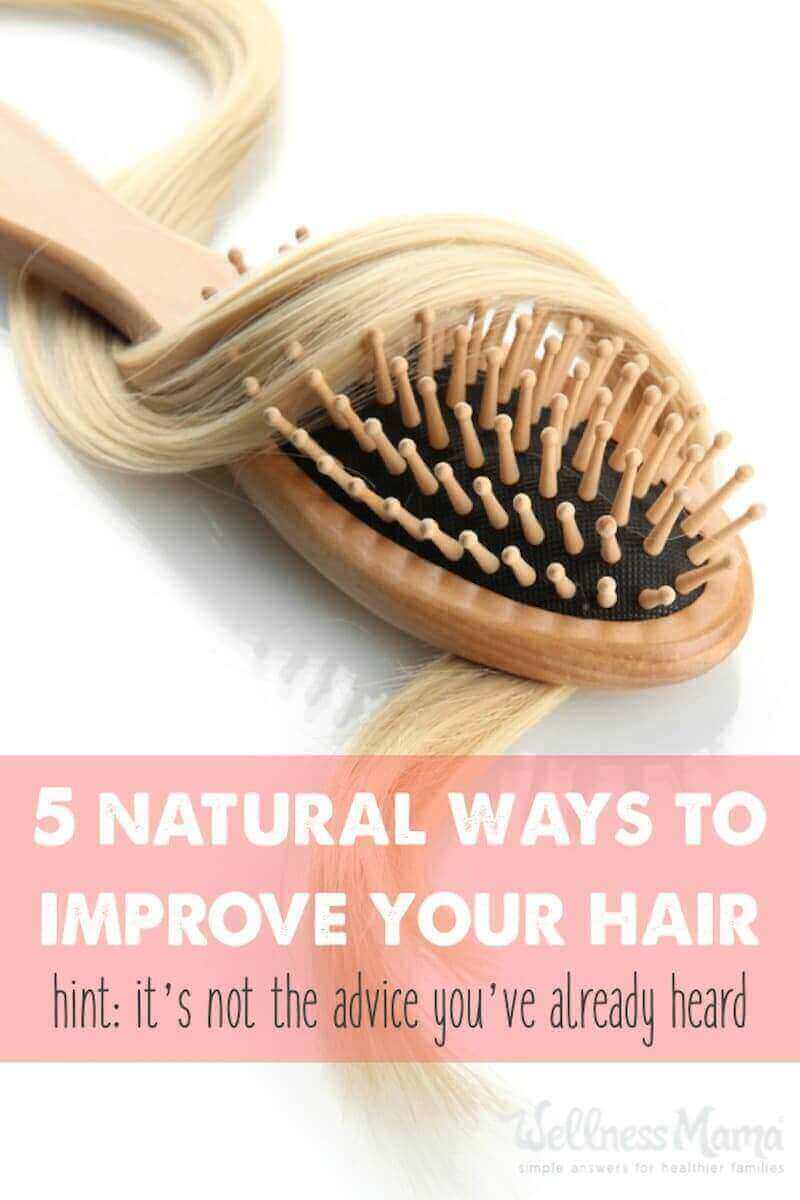
Source link

